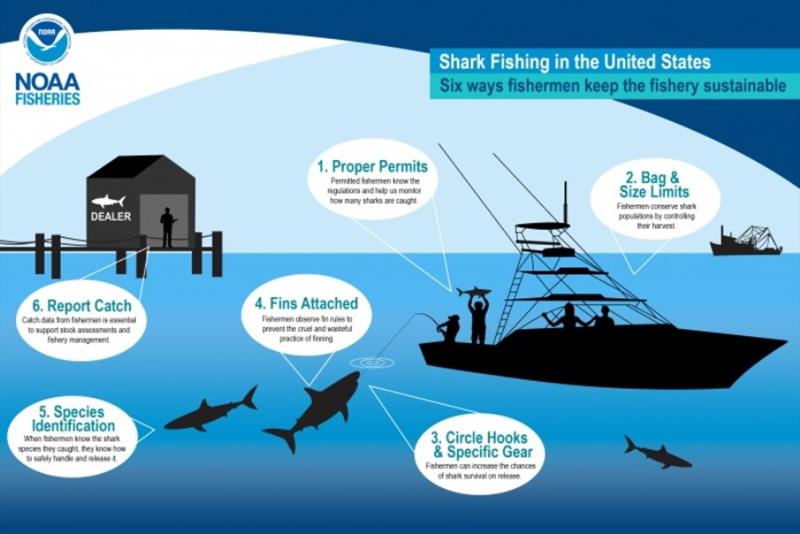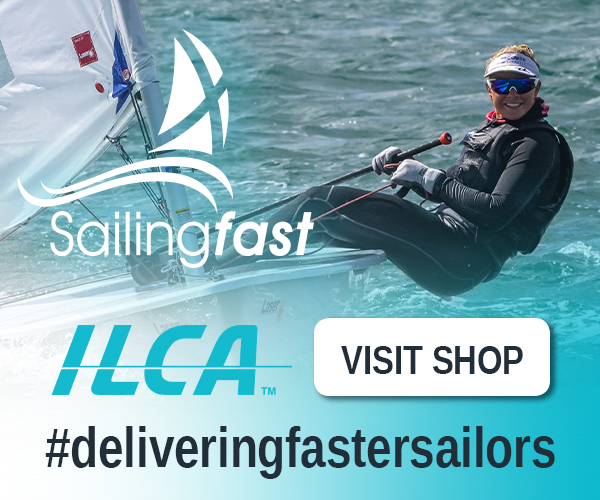
Six ways fishermen keep shark fishing sustainable
by NOAA Fisheries 27 Aug 2021 13:17 UTC

The six ways fishermen help keep the U.S. shark fishery sustainable © NOAA Fisheries
U.S. shark fisheries are among the most sustainably managed commercial and recreational fisheries in the world.
Here are six things fishermen do to help help us maintain a sustainable shark fishery:
- Have the proper permits
Fishermen need a federal fishing permit to fish for sharks. These permits, issued by NOAA Fisheries, help us communicate and enforce regulations and monitor how many sharks are caught.
- Follow bag and size limits
Commercial fishermen follow annual catch limits, gear restrictions, closed areas, and retention limits when fishing for sharks. The recreational shark fishery also has bag and size limits. These limits maintain the sustainability of the shark fishery by controlling the harvest. Minimum size limits protect many juvenile sharks from harvest and ensure they have the opportunity to mature and reproduce.
- Use circle hooks
Fishermen use circle hooks when using their rod and reel or longline fishing gear to catch sharks. Circle hooks increase the chance of hooking a shark in the jaw instead of the gut. This reduces injury to the shark's internal organs and increases their chance of survival when released. A shark that is hooked in the jaw is easier and safer to dehook. The only exception to using circle hooks is when recreational anglers are fishing with artificial lures or flies.
- Fins attached
Fishermen land sharks with their fins still attached. This prevents the cruel and wasteful practice of finning, which has been banned in the United States since 2000. Only sharks landed under the strict and sustainable commercial restrictions mentioned above may have their fins removed and sold after landing.
- Identify shark species
Commercial fishermen that use longline or gillnet gear are required to attend Handling and Release workshops where they learn which species they can keep and how to release those that are prohibited (including learning about the best ways to release sea turtles and marine mammals). Recreational fishermen are also trained in Catch and Release Best Practices so they know how to handle and safely release sharks. There are more than 20 prohibited shark species in the Atlantic and Gulf of Mexico. If a fisherman accidentally hooks a prohibited species, they release them in a manner that enhances survival. Both commercial and recreational fishermen use shark identification guides to help identify which sharks they are catching
- Report catch
Fishermen report their catch through various programs, including:
- Commercial fishing logbooks
- Electronic reporting technologies
- Recreational fishing surveys of catch
Commercial landings are also reported through dealer reports.
Collecting information on catch and landings helps assure the sustainability of the shark fishery. The data from these programs are essential to support stock assessments that determine how much harvest a fishery can support and whether current harvest levels are within sustainable limits.

